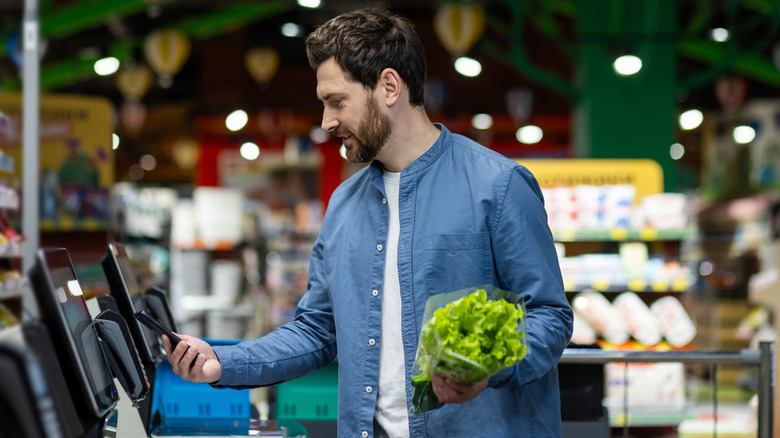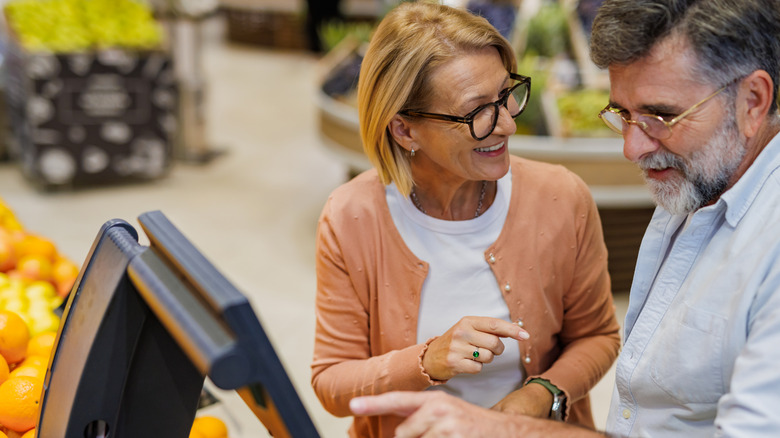This State Wants To Crack Down On Self-Checkout Tech In Grocery Stores
Self-checkout has continued to grow in grocery stores across the United States, with companies using the system to create shorter wait times and relieve staff stress. However, Massachusetts legislators want to limit the number of self-checkout stations in grocery stores across the state to address some growing concerns.
Democratic state Senator Paul Feeney is sponsoring the bill, titled "An Act Regulating Self-Checkouts in Grocery Establishments." If it passes, the 2,445 grocery stores in Massachusetts would be limited to eight self-service checkout stations per location — there has to be at least one manual checkout station for every two self-checkout stations, or stores will face a fine: a retail clerk's full day of pay and benefits.
This bill arrived after many retailers started reducing self-checkout stations on their own due to increased theft and longer wait times. "We've gotten a lot of momentum behind it," said Feeney. "We see this as a common-sense piece of legislation."
Why does Massachusetts want to cut down on self-checkout?
According to Feeney, customers and employees alike are "growing frustrated" with self-checkout at grocery stores. When it comes to customers, it seems that elderly shoppers are not enjoying self-checkout since they are unable to figure out how to use some of the machines. Without anyone around to talk to, these older shoppers are growing frustrated with the experience. About 19% of Massachusetts residents are considered elderly, which is a good chunk of customers growing confused. And when it comes to employees, self-checkout can sometimes cause longer lines to form — or even take jobs away from humans. Feeney said that this bill will hopefully stop "solid middle-class working-class jobs" from going to robots.
However, not everyone is convinced that self-checkout should be regulated. "It is not the responsibility of the state to determine how, when, and where a business deploys its staff," said the Massachusetts Food Association, which feels that customers enjoy the convenience of self-checkout and should have the choice to use it if they wish. Feeney countered that the country is at a "crossroads" as self-driving cars take over the road and AI runs the workplace. "We think it's smart as policymakers to just kind of slow that down." Meanwhile, we even have self-flying helicopters now.

